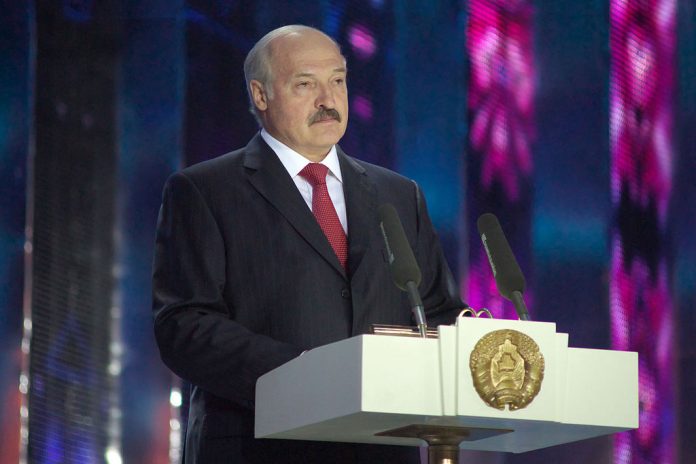Presidential election in Belarus, scheduled for Aug. 9, will be the most interesting one in the past 26 years. President Alexander Lukashenko, who has been in power since 1994, is expected to win and his main rival, Svetlana Tikhanovskaya, will not recognize the election results but will call her supporters for mass protests which could easily turn into riots and lead to destabilization of the eastern European country.
Since the opinion polls are outlawed in Belarus, it is impossible to predict what would be the “real” election results. The opposition claims that Lukashenko is supported by not more than 3 percent of the population, even though during the past five presidential elections he never received less than 70 percent of the votes. The truth is, as usual, somewhere in the middle. Belarusian leader is likely firmly supported by around 30 percent of the population, while the opposition led by Tikhanovskaya is seen as the good alternative to Lukashenko by approximately 20-25 percent of Belarusians. The rest of the population is simply waiting to see who will win and then join the winner. If the election was fair and free – which is a utopia in most countries, not just in Belarus – Lukashenko would likely win, be it already on Aug. 9, or in the second round. He is supported by the majority of pensioners, and it is worth noting that the median age in Belarus is 40.3 years. Also, he can count on rural voters, and to a certain extent on people who are employed at state-owned enterprises. Tikhanovskaya, on the other hand, is supported by young people, Belarusian nationalist, pro-West liberals, and also by upper middle class. Since Lukashenko controls the election process, and the Central Election Commission so far demonstrated its loyalty to the President, he has the possibility to portray any outcome he likes. Given that results such as 55:45, 60:40, or even 65:35 would mean that his position is much weaker than it was in the past, the Central Election Commission will likely declare that Lukashenko has got around 70 percent of the vote, and he would try to present himself as the “clear victor”.
Whatever the results are, Tikhanovskaya and the rest of the opposition will not recognize them. They already announced that they plan to hold mass protests after the election. Over the past 26 years, President Lukashenko has learned how to deal will demonstrations. So far Belarusian riot police did not have much trouble cracking down on protests. This time, however, the situation could be a bit more complicated for the authorities. Football hooligans already demonstrated that they are not satisfied with the way Lukashenko leads Belarus. Recently, during several football matches, they chanted anti-Lukashenko slogans, and if they join the protests the opposition can get a critical mass. That could be a big test for Lukashenko’s security apparatus. Although they are capable of handling violent protests, it remains to be seen if they are willing to do their job. In other words, their loyalty to Lukashenko is quite questionable. There are speculations that Russian secret services have infiltrated into Belarusian police and army, and given that relations between the two countries are very tense, it is highly uncertain if Russia will eventually recognize the election results, or if it will try to destabilize its only ally in Europe.
The United States Senate, on the other hand, already passed the resolution which calls for a free, fair, and transparent presidential election in Belarus and expressed disappointment over the lack of Western observers to monitor the vote. It is also worth noting that this is the first time that Russian observers will not monitor the vote allegedly due to “a very specific attitude of the Belarusian leadership to the coronavirus pandemic.” In addition, Belarusian authorities recently arrested 33 Russian mercenaries allegedly plotting to destabilize the country ahead of the presidential election. It is still unclear if members of the Wagner group were on the way to Libya, Venezuela, Sudan and Turkey, and just used Belarusian territory for transit, or if their primary goal was to start shooting during the post-election anti-Lukashenko protests, which would trigger a serious internal conflict in Belarus. Given that Lukashenko and Russian President Vladimir Putin recently discussed the detention of 33 Russian citizens, it is very probable they will be released after the election. However, Lukashenko threatened to hand over some of the Wagner mercenaries to Ukraine, as certain number of the arrested fighters has Ukrainian citizenship. Belarusian leader is likely raising the stakes and trying to trade with Russian leadership. After all, Russia is Belarus’ main trade partner, and as an experienced politician Lukashenko knows how far he can go in this game with the Kremlin. He is using anti-Russia rhetoric in order to mobilize his supporters and at the same time to present himself as someone who is protecting Belarus’ independence. He is also blaming Western countries, particularly Poland, of trying to destabilize the former Soviet state. It is a good election strategy as in the eyes of his voters he looks like a leader who is preserving the country’s sovereignty, and at the same time balancing between Russia and the West.
Such a policy could, however, soon come to an end. Russia does not seem to be willing to keep subsidizing Belarusian Soviet-style economy, nor to provide cheap oil and gas to its neighbor. The West, on the other hand, has clear demands: liberalization of the Belarusian economy, which means that Lukashenko would have to open Belarusian market for Western corporations and allow them to privatize Belarusian state-owned enterprises. Russian goals are, more or less the same. Thus, Russia and the West – partners and rivals at the same time – seem to jointly pressure Lukashenko to make certain concessions. The upcoming protests will likely be the last warning to Lukashenko. If he manages to suppress demonstrations without getting serious packages of sanctions, it will be a signal that the deal with the West and/or Russia was made. Alternatively, he will have to demonstrate if he is really willing to fight until the end at any cost, or he could join numerous leaders who were overthrown and had to leave their countries.
The views and opinions expressed in this article are those of the author.

The author is a Serbian freelance journalist. He writes for several publications such as CGTN, Geopolitical Monitor, Global Security Review, International Policy Digest and Global Comment. Nikola also regularly contributes for YouTube geopolitical channel KJ Vids. He covers mostly Russia, Belarus and Ukraine.


